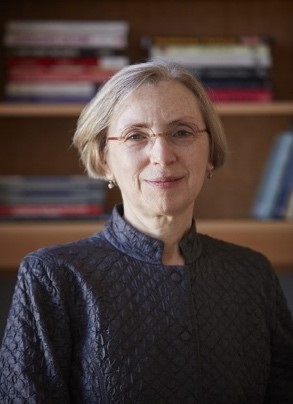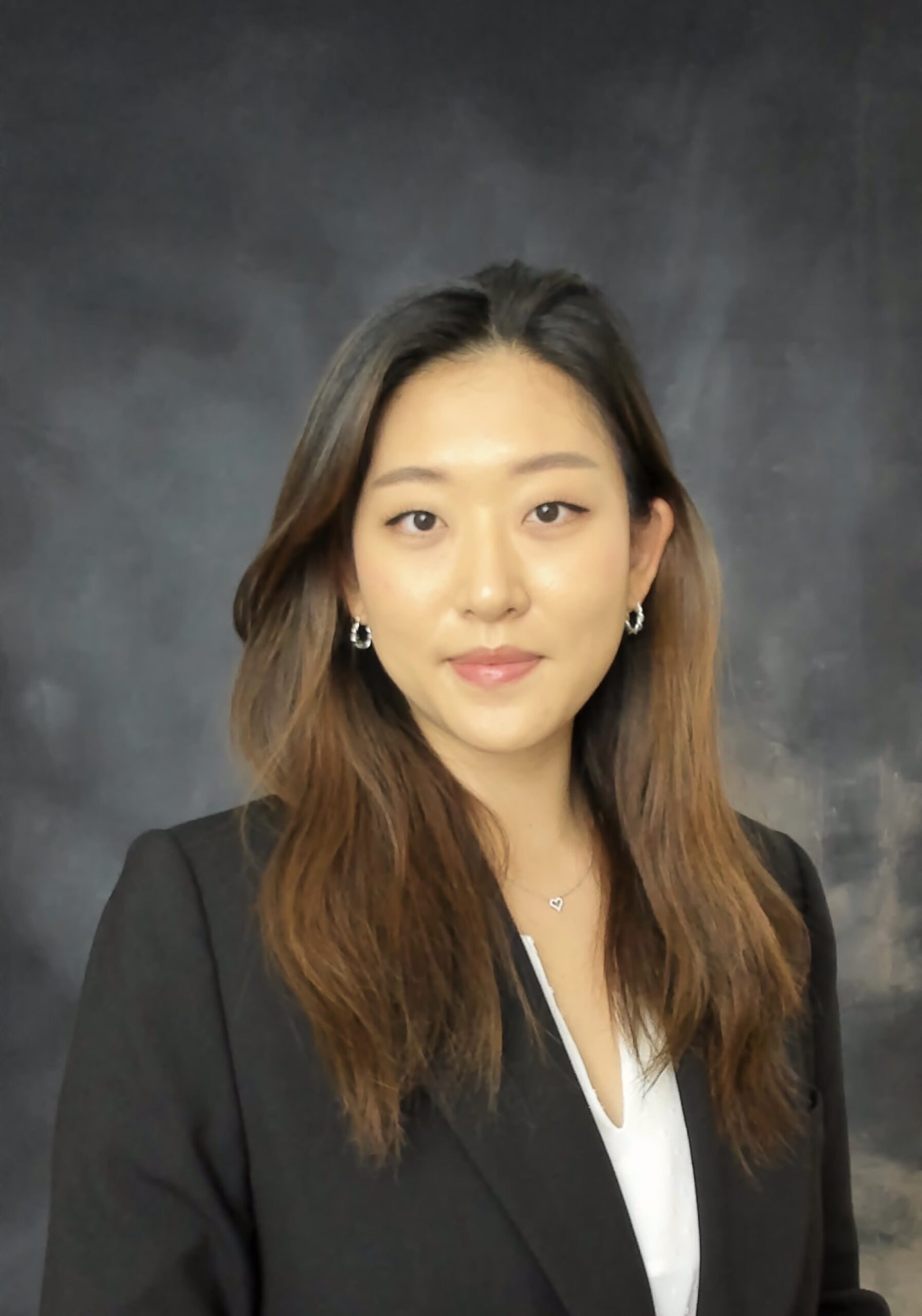Cancer Prevention Fellowship
The Cancer Prevention Fellowship is a joint program by the Harvard T.H. Chan School of Public Health and the Dana–Farber/Harvard Cancer Center. It trains the next generation of experts in cancer prevention and control, with emphasis on disparities, implementation science, health communication, global cancer, and population science methods.
677 Huntington Avenue, Kresge 6th floor
Boston, MA 02115
Who We Are
Leadership

Karen Emmons is a Professor of Social and Behavioral Science at the Harvard T.H. Chan School of Public Health. She is behavioral scientist with a strong track record of funded research in community-based approaches to cancer prevention in a variety of settings that serve under-resourced communities, including low income housing and community health centers. Her work targets a range of cancer risk factors, including nutrition, physical activity, sun exposure, tobacco and second-hand smoke exposure, and cancer screening. Her research teams have included interdisciplinary perspectives on cancer risk reduction and health disparities, with a focus on multiple cancer risk behaviors. Dr. Emmons has a strong track record as a mentor, and is a past recipient of a mid-career K award focused on dissemination an implementation research to reduce cancer disparities. Her current work and writing focuses heavily on implementation science, particularly in community health settings, and she has been actively involved in national efforts to develop implementation research and training programs. She currently serves as the Faculty Director of the Community Engagement Program for Harvard’s Clinical Translational Science Award. Dr. Emmons is Past-President of the Society of Behavioral Medicine, and a member of the National Academy of Medicine.

Current Fellows
Pre-doctoral Fellows

Sangah Clara Lee, MPH, is a Population Health Sciences doctoral student in the Department of Social and Behavioral Sciences. Her research interests focus on substance use among marginalized populations, particularly examining the potential of emerging substances, such as novel nicotine and tobacco products, to inform harm reduction strategies. Before joining the department, Sangah served as a Public Health Associate at the Centers for Disease Control and Prevention (CDC) and earned both her BA and MPH from Brown University.

Jessica Z. Woodard is a Population Health Sciences doctoral student in the department of Social and Behavioral Sciences. Prior to joining the department, she obtained an MPH in Behavioral, Social and Health Education Sciences at Emory University, and a BA in Public Health and Sociology at UC Berkeley. Her research interests include cancer disparities, health equity, social determinants of health and the intersection of obesity, unhealthy eating, and cancer risk. Through her doctoral studies, Woodard hopes to focus on cancer prevention research with an emphasis on implementation science, community engagement, and health promotion.
Post-doctoral Fellows

Ava Kikut-Stein, PhD, is a Postdoctoral Research Fellow in the Department of Social and Behavioral Sciences at Harvard Chan School of Public Health and Dana-Farber Cancer Institute. Kikut-Stein integrates quantitative and mixed methods communication research with community-based participatory action approaches to address health inequalities. As an NCI T32 Cancer Prevention Fellow, her work focuses on mitigating inequalities in cancer prevention, communication, and research. Kikut-Stein received her Ph.D. in Communication from the University of Pennsylvania.

Priyanka Gautom, PhD, MPH, is a Postdoctoral Research Fellow in the Department of Social and Behavioral Sciences at the Harvard T.H. Chan School of Public Health and the Dana–Farber/Harvard Cancer Center. Her research uses mixed methods and community-engaged approaches to develop culturally relevant strategies for improving cancer screening in medically underserved populations. As a fellow, she aims to apply implementation science and participatory methods to enhance the delivery of evidence-based cancer prevention interventions in under-researched communities. She earned her PhD in Community Health from Oregon Health & Science University and an MPH in Health Services from the University of Washington.

Alexandra (Alex) Ross, PhD, MHS, is interested in strategies that improve the availability, pricing, and desirability of foods to enhance diet quality. Her work primarily focuses on changes in the retail food environment, emphasizing food affordability, pricing, nutrient regulations, and international policy evaluations in the United States and South Africa. She earned her PhD in Nutrition Epidemiology from the University of North Carolina Gillings School of Global Public Health and holds a master’s degree in Social and Behavioral Sciences from the Johns Hopkins Bloomberg School of Public Health. As part of her work with the NIH T32 program, she aims to further evaluate nutrition policies such as nutrition assistance programs and labeling interventions and their potential impact on cancer prevention.
Faculty/Mentors
Below are the participating faculty members across multiple Harvard institutions, providing rich breadth of research opportunities for participating fellows.
Dr. Brittany Charlton is an Associate Professor at Harvard Medical School, Harvard Pilgrim Health Care Institute, and Harvard T.H. Chan School of Public Health. She is the Founding Director of the LGBTQ Health Center of Excellence—a partnership of the Harvard Chan School of Public Health and Harvard Pilgrim Health Care Institute.
Additionally, Dr. Charlton is the Director of Faculty Development for the Harvard Pilgrim Health Care Institute. At the Harvard Chan School of Public Health, she is Co-Director of the Master of Science Program in Epidemiology. At the Dana-Farber/Harvard Cancer Center, she is Co-Leader of the Cancer Epidemiology Program. Dr. Charlton is also on the faculty of The Fenway Institute, Boston Children’s Hospital, and Brigham and Women’s Hospital.
Dr. Charlton is known as a leading scholar of sexual and gender minority health inequities, particularly in cancer and reproductive health. The second focal area of her research is contraception use and family planning among people of all sexual orientations and gender identities. Her research has sustained continuous funding for the last 15 years from the NIH and foundations, including the American Cancer Society. She has been the Principal Investigator on 18 grants, including her most recent NIH-funded R01 award, focused on sexual orientation-related disparities in obstetrical and perinatal health.
Steven Gortmaker is Professor of the Practice of Health Sociology and directs the Harvard Chan School of Public Health Prevention Research Center on Nutrition and Physical Activity (HPRC). The mission of the HPRC is to work with communities, state and local government, and other partners to develop, implement, and evaluate the effectiveness and cost-effectiveness of strategies to improve nutrition and physical activity, reduce obesity and chronic disease risk among children, youth, and their families, and to reduce and eliminate disparities in these outcomes. He currently directs the Childhood Obesity Intervention Cost-Effectiveness Study (CHOICES). Results for more than 20 interventions have been published and presented at national conferences.
Gina Kruse, MD, MPH is a clinician investigator in the Division of General Internal Medicine at Massachusetts General Hospital. She trained in internal medicine and primary care at Mass General. She completed a Harvard Medical School General Internal Medicine research fellowship, earned her MPH in Clinical Effectiveness from the Harvard School of Public Health and completed a post-doctoral fellowship in Cancer Prevention from the Harvard School of Public Health Department of Social and Behavioral Sciences. Dr. Kruse’s research examines technology-based interventions to improve the delivery of preventive services, particularly tobacco cessation treatment. She focuses on underserved populations at risk for tobacco-related illness in settings in the US and internationally. Gina is the Director of the Implementation Team and leads the coordination of the dual screening pilot studies and capacity building work with the health centers.
Dr. Shoba Ramanadhan is a Senior Scientist in the Center for Community-Based Research at the Dana-Farber Cancer Institute and an Assistant Professor in the Department of Social and Behavioral Sciences at the Harvard T.H. Chan School of Public Health. Her work focuses on strengthening systems in underserved communities to leverage the best available evidence for cancer prevention and control. She designs and evaluates workforce development interventions to promote the use of research evidence within community-based organizations in the US and India, studies the adaptation of evidence-based preventive services for use in underserved communities in the US and India, and focuses on methods to incorporate practitioner expertise into the health promotion evidence base more effectively.
Dr. Rebbeck is the Vincent L. Gregory, Jr. Professor of Cancer Prevention at the Harvard TH Chan School of Public Health and Professor of Medical Oncology at the Dana-Farber Cancer Institute. Dr. Rebbeck’s research focuses on the etiology and prevention of cancer, with an emphasis on cancers with a genetic etiology and those that are associated with disparities in incidence or mortality by race. He has directed multiple large molecular epidemiologic studies and international consortia that have been used to identify and characterize genes involved in cancer etiology, understand the relationship of allelic variation with biochemical or physiological traits, explore interactions of inherited and somatic genomic variation with epidemiological risk factors.
Dr. Rees is Director of the Center for Global Tobacco Control, whose mission is to reduce the global burden of tobacco-related death and disease through training, research, and the translation of science into public health policies and programs. He directs the Tobacco Research Laboratory at the Harvard Chan School, where the design and potential for dependence of tobacco products are assessed. Studies examine the impact of dependence potential on product use and individual risk, to inform policy and other interventions to control tobacco harms. Current research uses conventional and innovative strategies to evaluate new and novel tobacco products. Examples of these products include modified risk tobacco products such as e-cigarettes; reduced ignition propensity cigarettes; hookah (tobacco waterpipe); and novel smokeless tobacco products such as snus. Clinical research methods are used to evaluate the influence of tobacco product design features on consumer responses, and their role in promoting initiation or maintenance of use among targeted populations. Findings have been used to inform tobacco control policy, develop resources for communicating risks of tobacco products, and to enhance understanding of factors that contribute to tobacco dependence.
Nancy A. Rigotti, MD, is a Professor of Medicine at Harvard Medical School, Associate Chief for Academic Advancement in the Division of General Internal Medicine at MGH, Director of the MGH Tobacco Research and Treatment Center, co-Director of the MGH Career Development Program in Substance Use and Addiction Medicine, and Past President of the Society of General Internal Medicine and the Society for Research in Nicotine and Tobacco. Her research aims to reduce the health burden of tobacco use by implementing tobacco cessation treatments in health care systems, both locally and globally, with special attention to reaching populations with high tobacco prevalence. A second focus is tobacco control policy evaluation, including the risks and benefits of alternative tobacco products. Nancy is a Co-Investigator on pilots focused on lung cancer screenings and tobacco cessation efforts in Massachusetts’ FQHCs.
S (“Subu”) V Subramanian is a Professor of Population Health and Geography at Harvard University, and Director of a University-wide Initiative on Applied Quantitative Methods in Social Sciences. He was also the Founding Director of Graduate Studies for the interdisciplinary PhD program in Population Health Sciences. He received his under- and post-graduate training at the University of Delhi, and completed his PhD in geography from the University of Portsmouth, UK. Working in collaborations with scholars across the world, he has published over 670 articles, book chapters, and books in the field of social and contextual determinants of health, health inequalities in India, and applied multilevel statistical models. He has consistently been included in the Highly Cited Researchers (top 1% of cited publications in Web of Science) list since 2015. His current research interests are developing and applying data science approaches for precision public policy in the context of health, nutrition and development.
Dr. K. “Vish” Viswanath is Lee Kum Kee Professor of Health Communication in the Department of Social and Behavioral Sciences at the Harvard T. H. Chan School of Public Health (HSPH) and in the McGraw-Patterson Center for Population Sciences at the Dana-Farber Cancer Institute (DFCI). He is also the Faculty Director of the Health Communication Core of the Dana-Farber/Harvard Cancer Center (DF/HCC). Other additional administrative and scientific leadership positions held by Dr. Viswanath include: Director of the Center for Translational Communication Science, DFCI; Director, Harvard Chan India Research Center and Director, Lee Kum Sheung Center for Health and Happiness, Harvard Chan. He is the founding Director of DF/HCC’s Enhancing Communications for Health Outcomes (ECHO) Laboratory. His work so far has documented the relationship between communication inequalities, poverty and health disparities, and knowledge translation to address health disparities.
Dr. Sara Bleich is the inaugural Vice Provost for Special Projects at Harvard University, Professor of Public Health Policy at the Harvard T.H. Chan School of Public Health, and a faculty member at the Harvard Kennedy School of Government. With more than 180 peer-reviewed publications, she is a policy expert and researcher who specializes in diet-related diseases, food insecurity, and racial inequality. Prior to this, Dr. Bleich served in the Biden Administration as the Director of Nutrition Security and Health Equity at the U.S. Department of Agriculture’s (USDA) Food and Nutrition Service and as the Senior Advisor for COVID-19 in the Office of the Secretary at USDA. As a White House Fellow during the Obama Administration, she worked at USDA as a Senior Policy Adviser for Food, Nutrition and Consumer Services and on First Lady Michelle Obama’s Let’s Move! initiative. Dr. Bleich was elected to the National Academy of Medicine in 2023 and holds a B.A. in psychology from Columbia University and a PhD in health policy from Harvard University.
Dr. Jason Block is a general internal medicine physician whose primary research interests are neighborhood-level determinants of weight gain and obesity, the evaluation of governmental and institutional policies and other novel interventions to improve diet, and leveraging electronic health record data for observational research and public health surveillance. He graduated from the Tulane University School of Medicine and School of Public Health and Tropical Medicine, and he completed a Robert Wood Johnson Foundation Health and Society Scholar program at Harvard University. He has served as a Senior Advisor in the Assistant Secretary for Health’s Office at the US Department of Health and Human Services, and he is a primary care physician and resident preceptor at Brigham and Women’s Hospital in Boston.
Professor Christiani’s major research interest lies in the interaction between human genes and the environment. In the emerging field of molecular epidemiology, he studies the impact of humans’ exposure to pollutants on health, as well as the how genetic and acquired susceptibility to these diseases along with environmental exposures can lead to acute and chronic pulmonary and cardiovascular disease. He is also developing new methods for assessing health effects after exposure to pollutants and has is very active in environmental and occupational health studies internationally.
His global work has taken place in Asia, Africa, and North America where Dr. Christiani and his wide network of collaborators are studying of the reproductive effects of exposure to chemicals, in China; arsenic exposure and bladder and skin cancer, in Taiwan and Bangladesh; exposure to indoor combustion products in respiratory disease in Central America; petrochemical exposures, brain tumors, and leukemia in Taiwan; and the molecular epidemiology of esphageal cancer in Africa. Preventing these diseases is an ultimate goal. Dr. Christiani has led the NCI-funded Boston Lung Cancer Study which has focused on assessing markers of exposure, susceptibilty, and outcomes in lung cancer. He co-led the Lung Program of the Dana-Farber/Harvard Cancer Institute for 20 years. In 2012, President Obama appointed him to a 7 year term on the National Cancer Advisory Board.
Dr. Clark’s research focuses on social determinants of health as explanatory factors for racial and ethnic disparities in cancer risk. An emerging literature demonstrates that disparities in cancer outcomes are not explained solely by access to medical care. Recent work includes the evaluation of a case-management intervention to improve screening and abnormal follow up for breast and cervical cancer screening among black women.
Dr. Geller’s current projects are varied and challenging with strong interests in cancer disparities, cancer screening, and work around COVID-19 mitigations in schools and in Massachusetts communities. For many years, Dr. Geller has taught an SBS class entitled ‘Successes and Challenges in Health Behavior Change’ where they look at some of the more successful comprehensive public health initiatives such as tobacco campaigns to see what lessons we can learn for modern-day epidemics such as those for tanning beds and obesity. Alan is principal investigator on the study focused on understanding and addressing utilization of immunotherapy for melanoma.
Dr. Kayoll Gyan, PhD, RN is a Nurse Scientist in Medical Oncology and the Associate Director of the Phyllis F. Cantor Center for Research in Nursing and Patient Care Services at Dana-Farber Cancer Institute. She is also a Member of the Faculty of Medicine at Harvard Medical School. Dr. Gyan is a social commentator on healthcare; she is an avid sports fan, a lover of all things Octavia Butler.
Jennifer Haas, MD, MSc is a clinician investigator and primary care physician at MGH with extensive research experience on the documentation of cancer control and prevention strategies and implementation of evidence-based tests and treatments for cancer in primary care settings. Jennifer is an investigator on the dual screening pilot within the Implementation Pilot Studies Unit.
Dr. Kim’s research focuses on the development and application of mathematical modeling methods to evaluate health policy issues related to women’s health. She has led the evaluation of the cost-effectiveness of prevention strategies against cervical cancer and other HPV-related diseases for informed decision making globally, working closely with the U.S. National Cancer Institute (NCI), the U.S. Preventive Services Task Force, the Bill and Melinda Gates Foundation, and most recently, the World Health Organization on cervical cancer elimination. She is a principal investigator of the Cancer Intervention and Surveillance Modeling Network (CISNET) – a consortium of NCI-sponsored investigators who use statistical and disease simulation modeling to predict the health benefits and harms of cancer control interventions.
Dr. Kim has won awards for her research at annual meetings held by the Association of Schools and Programs of Public Health, the Society for Medical Decision Making, and the International Papillomavirus Society. She has also received teaching and mentoring awards for her contribution to the intellectual growth, professional success, and well-being of students and postdocs at the Harvard Chan School.
At the School, she previously chaired the Faculty Council and the Committee on the Advancement of Women Faculty.
Dr. Howard K. Koh is the Harvey V. Fineberg Professor of the Practice of Public Health Leadership at the Harvard T. H. Chan School of Public Health as well as a member of the Faculty Executive Committee of the Harvard Advanced Leadership Initiative. In these roles, he advances interdisciplinary leadership education and training at the Harvard T.H. Chan School of Public Health as well as across Harvard University. He also serves as the inaugural Chair of the Harvard T. H. Chan School of Public Health Initiative on Health and Homelessness and Co-Director of the Initiative on Health, Spirituality and Religion at Harvard University. Previously at Harvard School of Public Health (2003-2009), he was Associate Dean for Public Health Practice and Director of the School’s Center for Public Health Preparedness.
Dr. Francine Laden is an environmental epidemiologist, who has authored approximately 300 peer-reviewed publications focusing on environmental epidemiology of chronic diseases, including cancer, respiratory and cardiovascular disease. Her research has or is concentrated on the following categories of exposures: air pollution (from ambient and occupational sources), persistent organic pollutants (POPs; organochlorines), secondhand smoke, temperature, and the contextual environment (e.g. built environment and green spaces). She is specifically interested in the geographic distribution of disease risk, incorporating geographic information system technology into large cohort studies to explore risk factors such as the built environment and indicators of socioeconomic status, as well as air pollution. She has published key papers on the association of ambient particulate matter and all cause and cardiovascular mortality in the landmark Harvard Six Cities Study and the Nurses’ Health Study and on the association of diesel exhaust exposures and lung cancer mortality in the trucking industry.
Dr. Laden is a Professor of Environmental Epidemiology and Associate Chair of the Department of Environmental Health and the Director of the NIH/NIEHS T32 Program for Training in Environmental Epidemiology at the Harvard T.H. Chan School of Public Health, and an Associate Professor of Medicine at the Harvard Medical School and Brigham & Women’s Hospital.
Dr. Mattei is the Donald and Sue Pritzker Associate Professor of Nutrition at the Department of Nutrition, Harvard T.H. Chan School of Public Health. She investigates the genetic, dietary, and psychosocial risk factors of obesity, type 2 diabetes, cardiovascular disease, and allostatic load in racial and ethnic groups as well as underserved and minority populations, as a framework to explain health disparities. Her emphasis is on Hispanics/Latinos in the U.S. and Latin America. Her multiple projects include longitudinal cohort studies in Puerto Rico, mixed-methods projects on diet, stress, and weight stigma, collaborations with epidemiological cohorts of Hispanics/Latinos in the Unites States, and culturally-tailored dietary interventions to prevent type 2 diabetes and heart disease in Boston and Puerto Rico. Her work extends to several Latin American countries through collaborative partnerships. Dr. Mattei promotes evidence-based policy and programs for chronic disease prevention in Puerto Rico and US-Latino communities. Her ultimate goal is to help Latinos and other ethnic and minority populations eat healthy and be healthy.
Dr. Mattei’s productive body of work was recognized in 2016 with a Mark Bieber Award for Outstanding Nutrition-related Research by the American Heart Association, of which she is recognized as a Fellow (FAHA), and the 2019 Paul Sorlie Early Career Investigator Award from HCHS/SOL.
The core of Dr. Sorensen’s research is randomized worksite-based studies that test the effectiveness of theory-driven interventions targeting changes in the work organization and environment as well as in workers’ safety and health behaviors. Her training in occupational sociology has provided a platform for focusing on the work organization and environment from a systems perspective.
She is the founding Director and Principal Investigator for the Harvard Chan Center for Work, Health and Wellbeing, funded since 2007, by the National Institute for Occupational Safety and Health (NIOSH) through its Total Worker Health® Program. Leadership of the Center is now shared with Dr. Erika Sabbath. The Center focuses on protecting and promoting worker safety, health and wellbeing through improved conditions of work. The Center conducts ground-breaking research to determine the effectiveness of workplace policies and practices designed to support and protect workers and to identify working conditions related to improved outcomes for employees and organizations. The Center also draws on decades of experience to disseminate evidence-based workplace policies and practices, and build organizational capacity to support worker safety, health and wellbeing. The Center also provides resources for employers to promote worker safety, health and well-being.
My research experiences and interests center on the development and utilization of population-based computer simulation models of the natural history of cancer to inform decision making in health policy and improve population health. Specifically, I am interested in the development and application of breast and cervical cancer simulation models to cancer prevention and control. My work is motivated by the fundamental concern for improving both methodology and the information available for decision making at both individual and population levels. My current research agenda includes 1) quantifying outcomes of interest such as the risk of a false positive test result or the reduction in cancer mortality under alternative screening strategies to inform individuals about trade-offs in benefits and risks from participation in those strategies; and 2) evaluation of breast cancer screening policies in the U.S. to guide policy decisions and resource allocation.
My research has been primarily focused in using Bayesian methods to create innovative model-based clustering techniques to address data complexities found in large, heterogeneous populations. These methods were generated as a result of my collaborative research interests in maternal health, nutritional epidemiology, psychological health, public health policy, and health disparities.
Jonathan P. Winickoff, MD, MPH, is a practicing general pediatrician and researcher. Dr. Winickoff’s research focuses on strategies to address tobacco use and exposure in families; current work includes CEASE (Clinical and Community Effort Against Secondhand Smoke Exposure), as well as projects related to thirdhand smoke, regulating smoking in multiunit housing, and raising the purchase age of tobacco to 21. As the past Chair of the AAP Tobacco Consortium, Dr. Winickoff works with pediatric tobacco control researchers across the country to develop the best tobacco practices for child healthcare settings. Dr. Winickoff is a Professor of Pediatrics at Harvard Medical School and MassGeneral Hospital for Children. Dr. Winickoff was educated at Yale University, Harvard Medical School, and Harvard School of Public Health and completed his pediatric residency at Boston Children’s Hospital and Boston Medical Center and fellowship in health services research at Harvard Medical School and Massachusetts General Hospital. Jonathan leads the Implementation Support and Research Team.
Dr. David R. Williams is the Norman Professor of Public Health and Professor of African and African American Studies at Harvard University. His prior faculty appointments were at Yale University and the University of Michigan. An internationally recognized social scientist, his research has enhanced our understanding of the complex ways in which socioeconomic status, race, stress, racism, health behavior and religious involvement can affect health. He is the author of more than 500 scientific papers and the Everyday Discrimination Scale that he developed is the most widely used measure of discrimination in health studies. Dr. Williams is an elected member of the National Academy of Medicine, the American Academy of Arts and Sciences and the National Academy of Sciences. He has been ranked as the Most Cited Black Scholar in the Social Sciences, worldwide, and as one of the World’s Most Influential Scientific Minds. He directed the South African Stress and Health Study, the first nationally representative study of the prevalence and correlates of mental disorders in sub-Sahara Africa. He was also a key member of the scientific team that conducted the largest study of the mental health of the black population in the U.S. and the first U.S. health study to include a large national sample of Blacks of Caribbean ancestry.
Davene R. Wright, PhD is an Associate Professor in the Department of Population Medicine, a partnership between the Harvard Pilgrim Health Care Institute and Harvard Medical School. She is also faculty in the Harvard PhD Program in Health Policy and a Site PI for the Harvard-Wide Pediatric Health Services Research Fellowship. She received a BS in Polymer and Textile Chemistry from the Georgia Institute of Technology in 2004 and earned her PhD in Health Policy and Decision Sciences from Harvard University in 2012.
Dr. Wright’s research designs interventions and promotes effective and efficient policies to improve the management of chronic diseases like obesity and diabetes. She leads interdisciplinary studies that use a range of methods including stated preference elicitation, economic evaluation, and simulation modeling. She is active in the Society for Medical Decision Making and co-chairs the Decision Sciences for Child Health Collaborative. Dr. Wright’s work has been funded by NIH, AHRQ, the American Heart Association, and the American Diabetes Association.